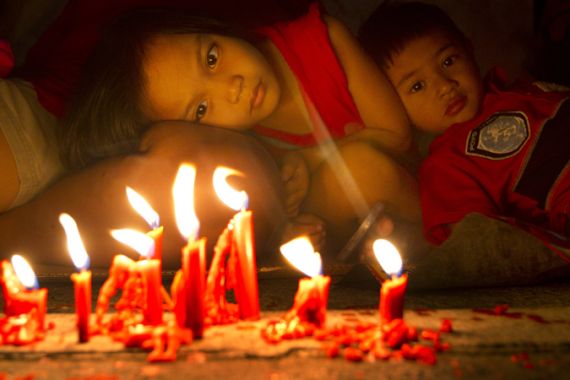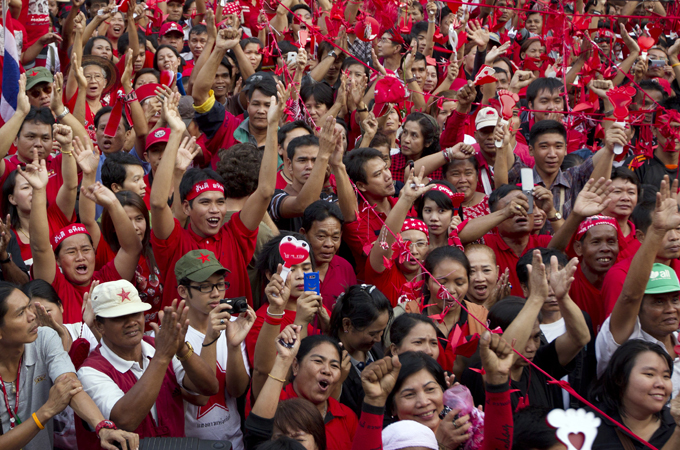Thailand to end state of emergency
Government cites improved political climate for lifting emergency law in the capital Thailand.

 |
| The anti-government ‘red shirts’ have held peaceful rallies since May, attracting over 10,000 people [GALLO/GETTY] |
Thailand has agreed to lift an eight-month state of emergency in its capital Bangkok, citing an improved political climate and a less confrontation approach by anti-government “red shirt” protesters.
But the government said on Tuesday that it would use a milder security law – the Internal Security Act (ISA) – in the event of a return to violence.
The ISA allows the authorities to impose restrictions such as curfews and bans on gatherings.
Supachai Jaisamut, the deputy government spokesman, said: “The cabinet has evaluated the current situation and found that the movement by protesters is more peaceful, lawful and largely symbolic.”
A state of emergency was declared in Bangkok and surrounding provinces on April 7 after demonstrators occupying the city’s commercial heart broke into the grounds of parliament to press their demands for early elections.
It was later extended to cover almost one-third of the country’s 76 provinces, including many red shirt strongholds, in an effort to control the protest movement, which was finally put down by the military in May.
The state of emergency was gradually lifted in most locations except Bangkok and three surrounding provinces.
During the protests, 91 people died and more than 1,800 were wounded in the country’s worst political violence in modern times.
Human-rights campaigners and anti-government protesters complained that the decree violated human rights and accused the authorities of abusing it to stifle political opposition and free speech.
The Centre for the Resolution of the Emergency Situation, an ad hoc body set up to manage the state of emergency, had insisted that the decree was necessary because the political climate was volatile.
Despite a ban on gatherings of more than five people, the red shirts have held several peaceful rallies since May, the latest on Sunday, which attracted more than 10,000 people in central Bangkok.
Al Jazeera’s Aela Callan, reporting from Bangkok on Tuesday, said there were “still some very serious concerns about human rights … and freedom of expression”.
“They [authorities] still will have powers to use force to crackdown, using military intervention in day-to-day governance,” she said.
The move to lift the state of emergency comes at a crucial time for Thailand, which is preparing to hold elections before the end of 2011 amid speculation that the polls could be postponed.
Meeting with red shirt leader
Against this backdrop, Abhisit Vejjajiva, the prime minister, has held a meeting with Thida Thavornseth, the acting leader of the red shirts, to discuss bail for the movement’s leaders and over another 100 detained since May.
Thida has said that the movement’s immediate goal was to seek the release of the detainees.
But Abhisit said that bail was up to the criminal court and he also repeated that an election could be held early next year if the country was peaceful.
Sukhum Nuansakul, an independent political analyst, said “both of them [Abhisit and Thida] have sent somewhat positive signals after the meeting that peace should hold”.
The resurgence of the red shirts, most of whom back ousted leader Thaksin Shinawatra, is a major political risk to Southeast Asia’s second-biggest economy, which is projected to grow 7.5 per cent this year before slowing in 2011.